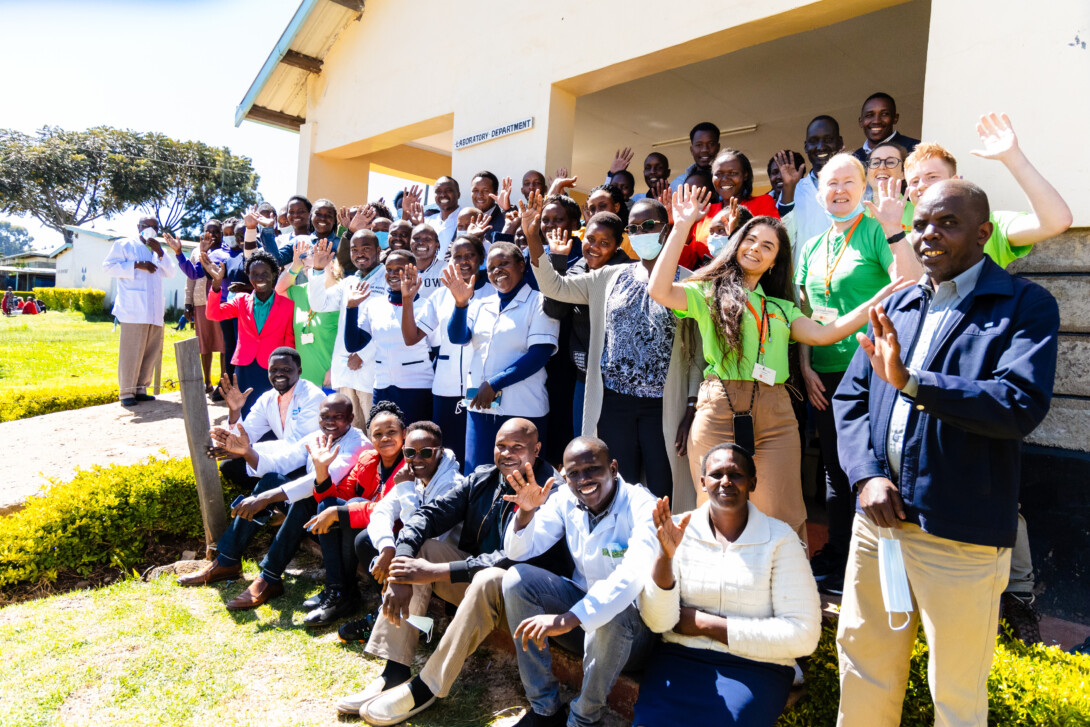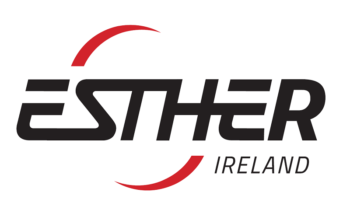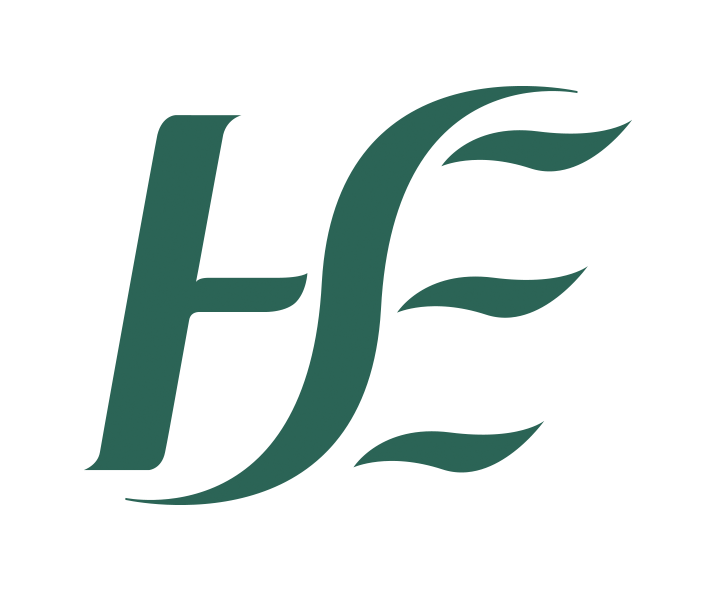We kick off 2024 with an insightful blog by Eddie Conran of the ESTHER-supported Mayo-Londiani partnership. The piece titled ‘Reciprocity and Technology: Two Decades of the Mayo-Londiani Partnership‘, shares the evolution of a global health partnership over time, the challenges with maintaining the connection through upheaval (such as the Global Pandemic!), and the role of technology in driving reciprocal learning.
Reciprocity and Technology: Two decades of the Mayo-Londiani Partnership By Eddie Conran

Starting in 2004 with a focus on obstetrics and midwifery, the partnership between Mayo University Hospital (MUH) and the Londiani Sub-County Hospital (LSCH) has been long-standing. In the 20 years since its inception, the partnership has dealt with many challenges, the most recent one being the COVID-19 pandemic leading us to ask the questions: How do two partner institutions across the globe collaborate when they can no longer meet and how do we continue to centre equity and reciprocity in our partnership?
As we return to a “new normal”, in the post-COVID-19 world, I have been reflecting on our learnings and on the opportunities for 2024. The pandemic exposed the differences and inequality between the Irish and Kenyan health systems and forced us to examine alternative pathways for the partnership to flourish when we could not physically visit each other.
During the pandemic, we, like others, pivoted to online workshops/meetings, which worked surprisingly well, challenging our assumptions about the use of technology in global health collaborations. I was surprised by how good the level and quality of internet availability in rural Kenya was. Partnership activities such as workshops and the development of a vaccine centre in LSCH continued online. We were able to conduct remote meetings and clinical training sessions effectively via Zoom. The speed of internet access on my phone while there exceeded the speed I get on my broadband at home. The effective and affordable local solar power solutions really are also a marvel. So even at a distance, we found a lot to be inspired and learn from, continuing the precedent set in our partnership of knowledge exchange. Visits by MUH have recommenced in recent months but the challenges of COVID-19 disruption have reinforced the idea that shared learning is possible utilising technology.
Waves of staff have exchanged visits and knowledge over the last 20 years, emphasizing reciprocity as a core element of the partnership. The partnership broadened over time to include Surgical Care, Essential Emergency Obstetric and Newborn Care; Integrated Management of Childhood Illness; Perioperative Nursing; Tropical Medicine; HIV Medicine; Non-communicable disease; Primary Trauma Care and Remote Emergency Care. MUH staff from many different professional backgrounds have participated and report learning at least as much as they teach by participating in these visits. The cross-professional nature of the teams and the limited time available in each visit greatly encourage breakdown in roles and flexibility. The learning fellow Irish colleagues gain while in Kenya would be hard to achieve at home.
In 2019, following visits to Kenya by two groups of MUH and other Mayo based staff, a five-year quality improvement partnership renewal was agreed between the two hospitals. Brighter Communities Worldwide facilitated this & there was the welcome addition of two university collaborating partners – Kenyatta University and National University of Ireland, Galway.
Visiting teams from MUH have worked with teams from Londiani Sub-County Hospital (LSCH) and Brighter Communities Worldwide (BCW) on clinical service developments including emergency retrieval/ambulance service and essential obstetric and newborn care. Shared education has continued across both hospitals including Surgical Care, Essential Emergency Obstetric and Newborn Care; Integrated Management of Childhood Illness; Perioperative Nursing; Tropical Medicine; HIV Medicine; Non-communicable disease; Primary Trauma Care and Remote Emergency Care.
The learning for MUH staff on how to run community-based services in a rural area that are effectively integrated with acute care and public health services has been significant. The parallels between the two locations (rural dispersed populations that require enhanced local health services) are not to be underestimated. Mayo/Ireland West and Londiani/Kericho County have much in common and much to teach each other. BCW’s model for training community teams to deliver education sessions remotely allows a uniform message to be delivered effectively to a dispersed population with “on the ground” buy-in. It is simple, scalable and sustainable. This is certainly relevant to Ireland where the health system is becoming more localised and clinical roles are transferring between professions. We noticed when we have had cross professional teams on the ground recently delivering training (on trauma management etc.) that the Irish staff learned a lot from each other quickly in that structure. Our systems, in contrast, are very complex and at times overly so. This is a great example of how we have been able to identify commonalities in differing contexts, teach each other and improve health outcomes together.
Most Irish staff also remark on how efficiently utilised resources are in Kenya compared to here. There is material and financial efficiency which also contributes to the all-important requirement to reduce waste. The scale of change in Kenya is very rapid. Thus the opportunity to make dramatic change, good and bad, is enhanced. Ireland has a long experience of tracking other countries that are slightly ahead of us and trying to avoid their mistakes, so we are ideally placed to see very similar opportunities and risks for others. The problems we have now are the problems of success and scale, which I believe also echoes the issues in rural Kenya. Technology, such as AI tools for diagnostics, can hopefully help Kenya skip many of the painful and long lessons we had to go through in this country on the path to independence but equally it can remind us of some of the simple truths that motivate us to be on such a path at all.
The extremely efficient use of resources and technology in Kenya to overcome the challenges of working on a geographically dispersed team have lessons for everyone working in the Irish Healthcare system, particularly those serving rural areas. Kenya and Ireland are changing rapidly, and the health systems need to keep up. The technological advances and shared learned are even more relevant now than they were 20 years ago. Establishing partnerships that are centred on reciprocal learning for global health are crucial to drive the field forward. We must continue to recognise and share the wealth of knowledge that lies in every context, uplifting health systems across the world with equitable and collaborative partnership.
About the Author
 Eddie Conran currently works as a Radiography Services Manager in Mayo University Hospital, part of the Saolta Hospital Group. He has previous clinical experience and post graduate qualifications in MRI and ultrasound. Eddie has worked across the private and public sectors in Ireland, England and Australia. He has a particular interest in the expansion of community based radiology services.
Eddie Conran currently works as a Radiography Services Manager in Mayo University Hospital, part of the Saolta Hospital Group. He has previous clinical experience and post graduate qualifications in MRI and ultrasound. Eddie has worked across the private and public sectors in Ireland, England and Australia. He has a particular interest in the expansion of community based radiology services.
For more insightful blogs like this, subscribe to the ESTHER Ireland Newsletter! Click here to sign up.
To view other blog posts, click on the page numbers below

